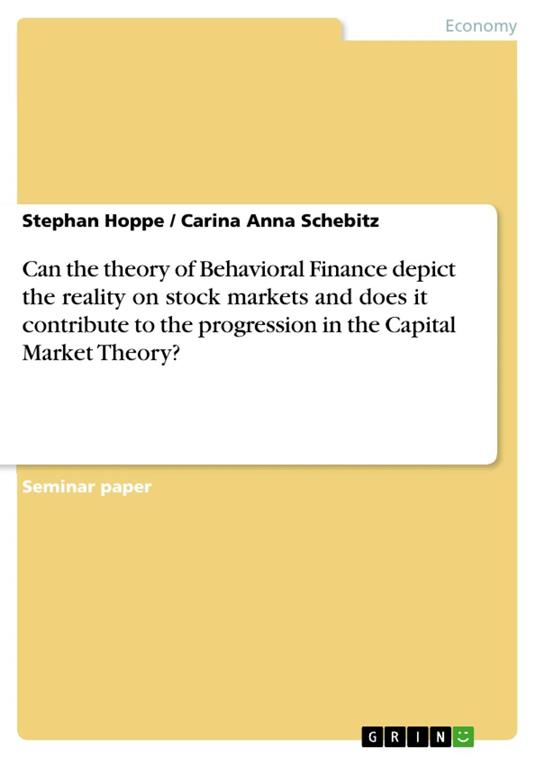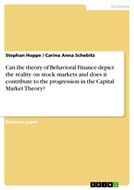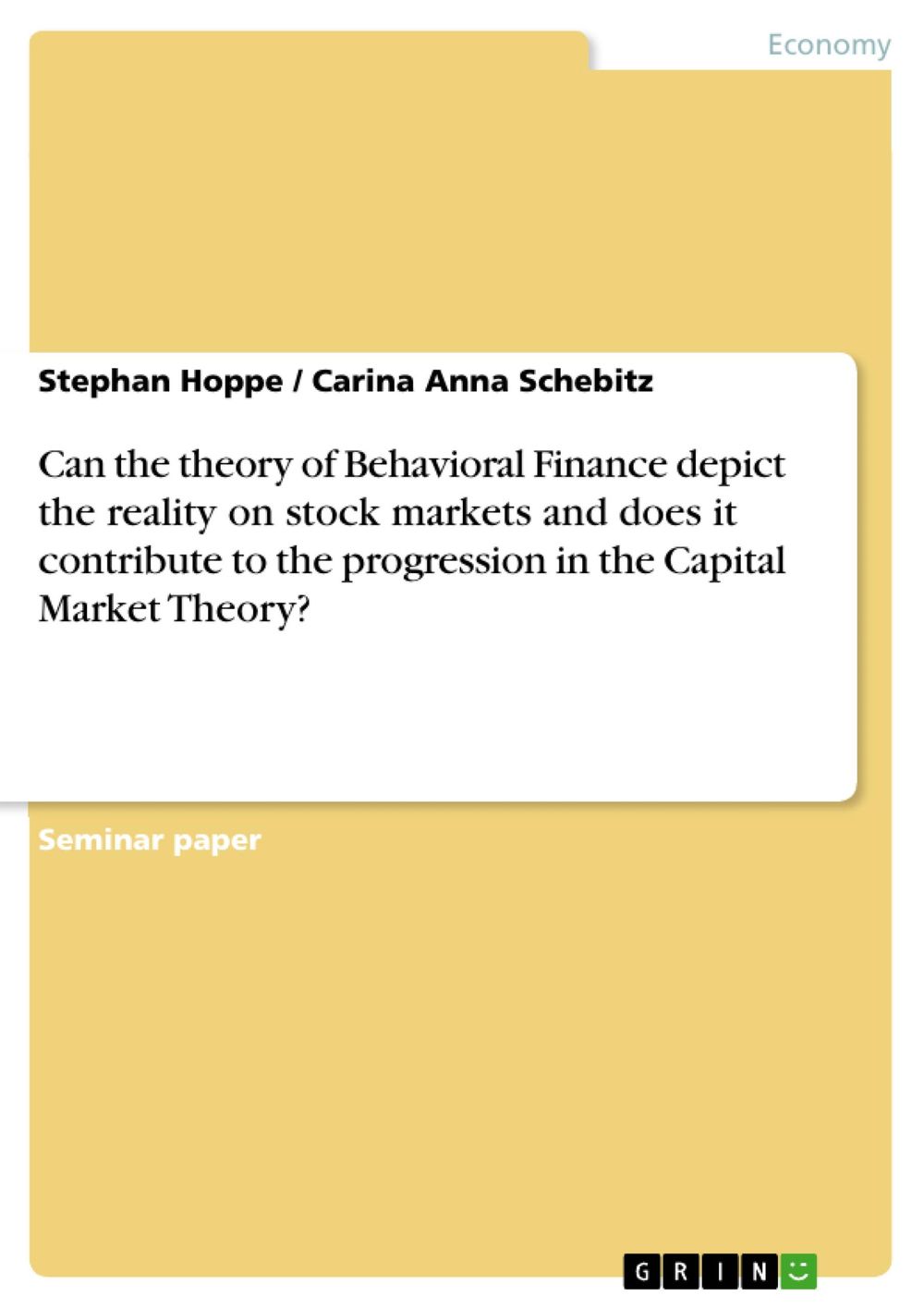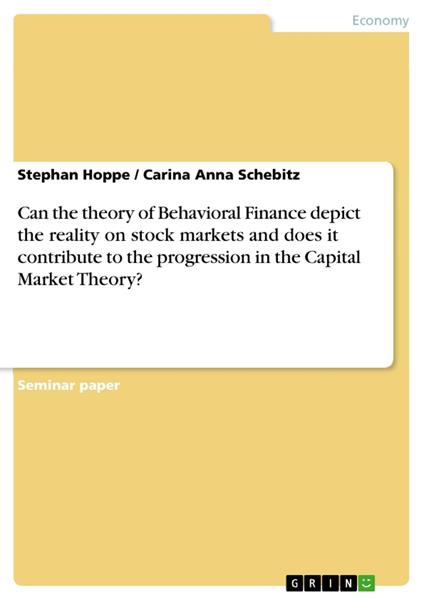Can the theory of Behavioral Finance depict the reality on stock markets and does it contribute to the progression in the Capital Market Theory?
Seminar paper from the year 2015 in the subject Business economics - Investment and Finance, grade: 1,7, University of Applied Sciences Essen, language: English, abstract: "The Portfolio Theory" by Harry Markowitz, the "Capital Asset Pricing Model" by William Sharpe and the concept of the "Homo Oeconomicus" of Adam Smith – all of these models that are taught to business students and referred to by financial specialists all over the world are based on the assumption of the fundamental efficiency of markets. Market analysts build their substantial economic and financial predictions on the supposition that investors and corporations always behave and decide rationally. Consequently there would not be a chance that manias, panics or crashes ever occur. Nevertheless there were various speculation bubbles in the past such as the 1929 Stock-market-crash, the Dot-com bubble starting 1997 and the US-Subprime crisis as of 2007. So stock prices show fluctuations that cannot be only elucidated by economic factors. Moreover there are studies that come to the conclusion that there is only a low correlation between share prices and fundamental data. Concomitant new research approaches deployed that either developed the existing models further or even created a complete paradigmatic change. Nowadays when it comes to explaining the occurrences on the stock markets the field of psychology and the behavioral science gain in relevance. However the following question arises: Can the theory of Behavioral Finance depict the reality on stock markets and its participants and does it make a contribution for the progression in the Capital Market Theory? Yet there are some approaches that attempted to answer this question but there is no scientific consensus about it. Hence this term paper should accomplish a concise but fundamental contribution for the contemplation of this topic.
-
Autore:
-
Anno edizione:2017
-
Editore:
-
Formato:
-
Lingua:Inglese
Formato:
Gli eBook venduti da Feltrinelli.it sono in formato ePub e possono essere protetti da Adobe DRM. In caso di download di un file protetto da DRM si otterrà un file in formato .acs, (Adobe Content Server Message), che dovrà essere aperto tramite Adobe Digital Editions e autorizzato tramite un account Adobe, prima di poter essere letto su pc o trasferito su dispositivi compatibili.
Cloud:
Gli eBook venduti da Feltrinelli.it sono sincronizzati automaticamente su tutti i client di lettura Kobo successivamente all’acquisto. Grazie al Cloud Kobo i progressi di lettura, le note, le evidenziazioni vengono salvati e sincronizzati automaticamente su tutti i dispositivi e le APP di lettura Kobo utilizzati per la lettura.
Clicca qui per sapere come scaricare gli ebook utilizzando un pc con sistema operativo Windows



